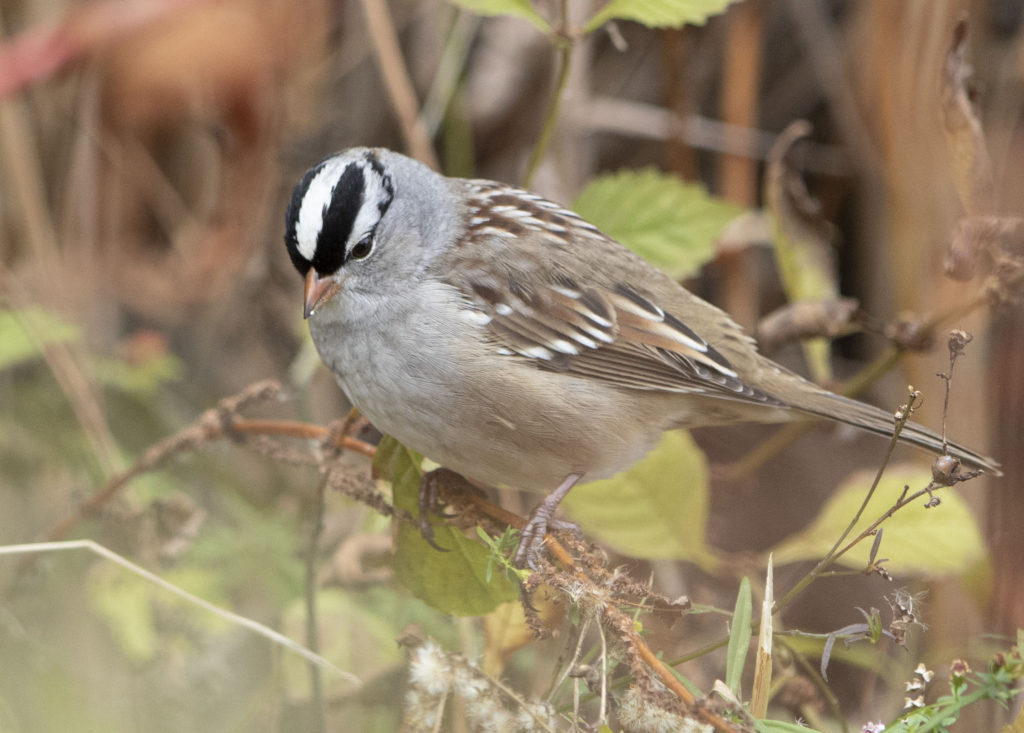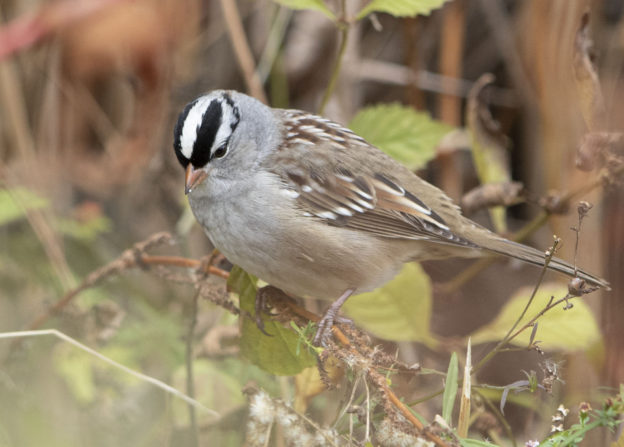You may have heard it or even said it. “Nature is healing” has become a common refrain during the COVID-19 crisis, perhaps as a way to look for a bright side of a tragedy.
And while some examples are simply wishful thinking, like false stories of dolphins’ return to the canals of Venice, there is real evidence that less human disturbance during the pandemic changed how Californian White-crowned Sparrows sing.

Less Noise, More Song
Researchers conducting a long-term study on White-crowned Sparrow songs saw an opportunity in the lull of a lockdown. Before the pandemic, the San Francisco-based team had studied how increases in city noise changed birds’ singing behavior. But this April, traffic noise fell to its lowest level since 1954.
In normal years, the researchers had found that White-crowned Sparrows compete with city noise by singing louder, higher-pitched, and simpler songs.
While simpler, louder songs rise above the hum of traffic, they come at a cost: males can’t sing both loudly and well. That disadvantages the fittest male White-crowned Sparrows, which advertise themselves with more complex songs. For females, which pick mates based on song quality, a city full of males shouting a limited series of notes curtails their ability to choose a good partner.
But just days after a stay-at-home order went into effect, urban sparrows reverted to singing the soft, complex songs of their rural counterparts.
The researchers found that their calls carried twice as far as before, both because of the varied tones of the song and because of lower ambient noise. And according to the team, males fight less over territory when they can hear each other’s songs from further away.
This study shows how quickly birds can return to natural behaviors after human disturbance are removed. Of course, there are many other kinds of human pressures on ecosystems that leave long-lasting or permanent effects– just not in this case.
So, if you think you heard more birds this summer during the pandemic, you might be on to something. Regardless of whether local birds change their singing behavior, less noise pollution probably means that we hear more birdsong– a thin silver lining in itself.


